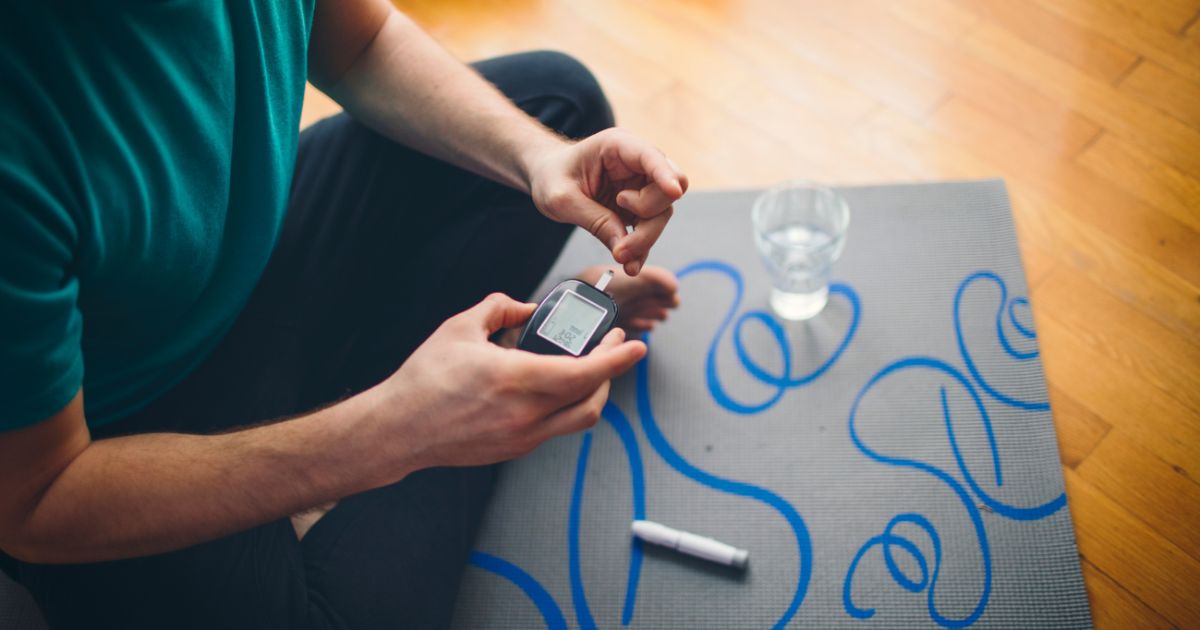10 Natural Supplements You Should Include in Your Diet
The American Diabetes Association estimates that about 37.3 million American adults have diabetes, and nearly a fourth are undiagnosed, and another 96 million have prediabetes.
The holidays are famous for cookies, candy, hot chocolate, and other sweets. While delicious,
they can wreak havoc on our health. Luckily, there’s no shortage of foods that can counteract the holiday sugar rush we enjoy.
If you want to lower blood sugar the natural way, here are ten supplements that can help!
1. Berberine
Berberine is a chemical compound taken from a combination of roots and stems from multiple plants, and has been shown to help lower blood sugar and improve insulin sensitivity. A meta-analysis of 27 studies found that, in combination with lifestyle and diet changes, taking berberine reduced fasting blood sugar in people with type 2 diabetes.
The average dose is 300-500 mg, taken 2-3 times daily with food. However, berberine can impact the effects of other medications, so consult a physician before adding it to your daily regimen.
2. Cinnamon
Cinnamon isn’t just a popular fall and winter spice. It can also stimulate your body’s response to insulin, which allows sugar into cells and lowers your blood sugar. In one study, people with prediabetes took 250 mg doses of cinnamon extract before breakfast and dinner every day for three months. By the end of the study, their fasting blood sugar decreased by an average of 8.4% compared to the control group. Another study shows that people with type 2 diabetes experienced similar results.
3. Probiotics
Probiotics help protect your gut and thus offer multiple health benefits to improve your overall well-being, including decreasing your blood sugar faster. Animal studies indicate that probiotics reduce inflammation and protect pancreatic cells that create insulin. In an analysis of multiple studies, people with type 2 diabetes who took probiotics for at least two months experienced a 16 mg decrease in fasting blood sugar.
4. Fiber
A high-fiber diet can improve your ability to regulate blood sugar. Fiber slows sugar absorption and carb digestion, promoting a steady rise in your blood sugar levels, reducing your chances of experiencing low blood sugar. We recommend a daily intake of 35 mg of fiber for men and 25 mg for women, so start adding more fruits, vegetables, and whole grains to your diet!
5. Chromium
Chromium is a mineral that helps your body metabolize carbs and fats. It could also jumpstart insulin action, further aiding blood sugar regulation. If you haven’t heard of chromium before, don’t worry. You can find it in meat, fruits, vegetables, nuts, and whole grains.
6. Magnesium
Magnesium is also shown to benefit your blood sugar levels. Studies show that people with
diets rich in magnesium can be linked to diabetes risk reduction. Foods rich in magnesium
include:
- Dark chocolate
- Beans
- Bananas
- Avocados
- Dark leafy greens
- Whole grains
You probably don’t need magnesium supplements if you’re already consuming plenty of these.
7. Aloe Vera
Aloe vera’s healing properties go way beyond treating sunburns. Aloe vera can also help lower your blood sugar. An analysis of nine studies found that people with type 2 diabetes who supplement with aloe vera experienced an average decrease of 46.6 mg in fasting blood sugar after 4 – 14 weeks. Currently, there’s not enough information out there to determine what form or dose quantity yields the best results. Also, consult your physician before supplementing with aloe vera, since it may interact with other medications.
8. Gymnema
Gymnema sylvestre is an herb from the gurmar plant, Hindu for “sugar destroyer.” Gymnema sylvestre can reduce how much sugar your gut absorbs, while promoting your cells’ ability to uptake sugar from your blood. Studies suggest it may also help your pancreas create insulin-producing cells. It’s frequently used in India to treat diabetes.
You can purchase gynmena syvestre supplements online, but consult your physician before
doing so. Typically, the suggested dose is 200 mg twice a day.
9. Vitamin D
Vitamin D can improve your pancreas’ ability to make insulin, while increasing your body’s
responsiveness. Low vitamin D levels may also be a risk factor for type 2 diabetes. The
recommended suggested varies from person to person, so talk to your physician about getting a
vitamin D blood test to determine the best dose for you.
10. Water
Never underestimate the power of staying hydrated. Drinking enough water can help regulate your blood sugar levels, keeping them in healthy ranges. It also reduces your risk of diabetes. On average, it’s recommended that men and women drink 15.5 cups and 11.5 cups of water per day, respectively. However, 20% of that amount typically comes from other foods and beverages you consume throughout the day.
Lower Blood Sugar the Natural Way at Boston Direct Health
Whether you’re looking to take supplements or make a lifestyle change, Boston Direct Health has everything you need for enhanced wellness. It’s hard to stay healthy during the holidays, but we’re here to help you. Are you ready to lower your blood sugar the natural way? Send us a message today!







